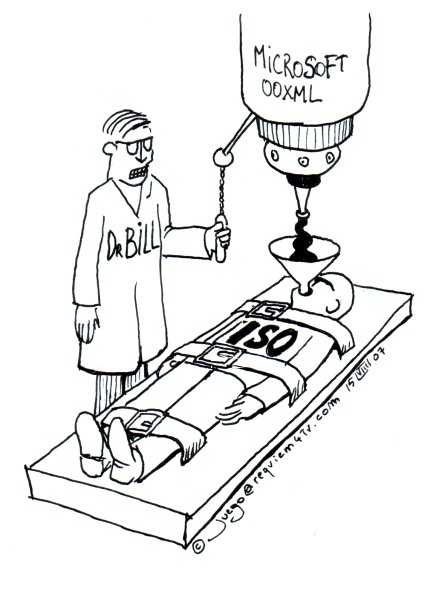IBM move reopens Open Office XML debate


On his own blog, IBM vice president for Open Source Bob Sutor wrote "IBM is more committed to open standards than ever before" because "they provide more options, better products, and insurance against being locked in by any one vendor or provider."
Insurance against being locked in is the key phrase there.
Even if it doesn't reopen the debate in fact, the decision certainly reopens it in spirit, as IBM's complaints about process echo those opponents of OOXML put forward before the ISO.
What makes this even more important is that the approved OOXML standard has yet to be implemented by Microsoft or anyone else. Thus we still have a standard which does not exist.
Here's the real irony.
- Before submitting its Office format as Office Open XML, Microsoft held it as proprietary.
- To make OOXML a standard, Microsoft allowed others to implement it.
- But with no one (including Microsoft) implementing it
- Microsoft could simply change the format and go back to having it be proprietary.
It will be as if the recent battle never happened.
Andy Updegrove noted twice on his ConsortiumInfo blog that the IBM wiki recommended "governments regulate intellectual property component of standards" and it will be interesting to see how far that goes.
Most important for the whole reform process is what other companies, like Google, Oracle and HP, say in response. IBM still has just one vote on standards bodies.
If other companies stand with IBM on this, Microsoft's vision of a politicized and corporate-controlled standards process may yet be overturned.